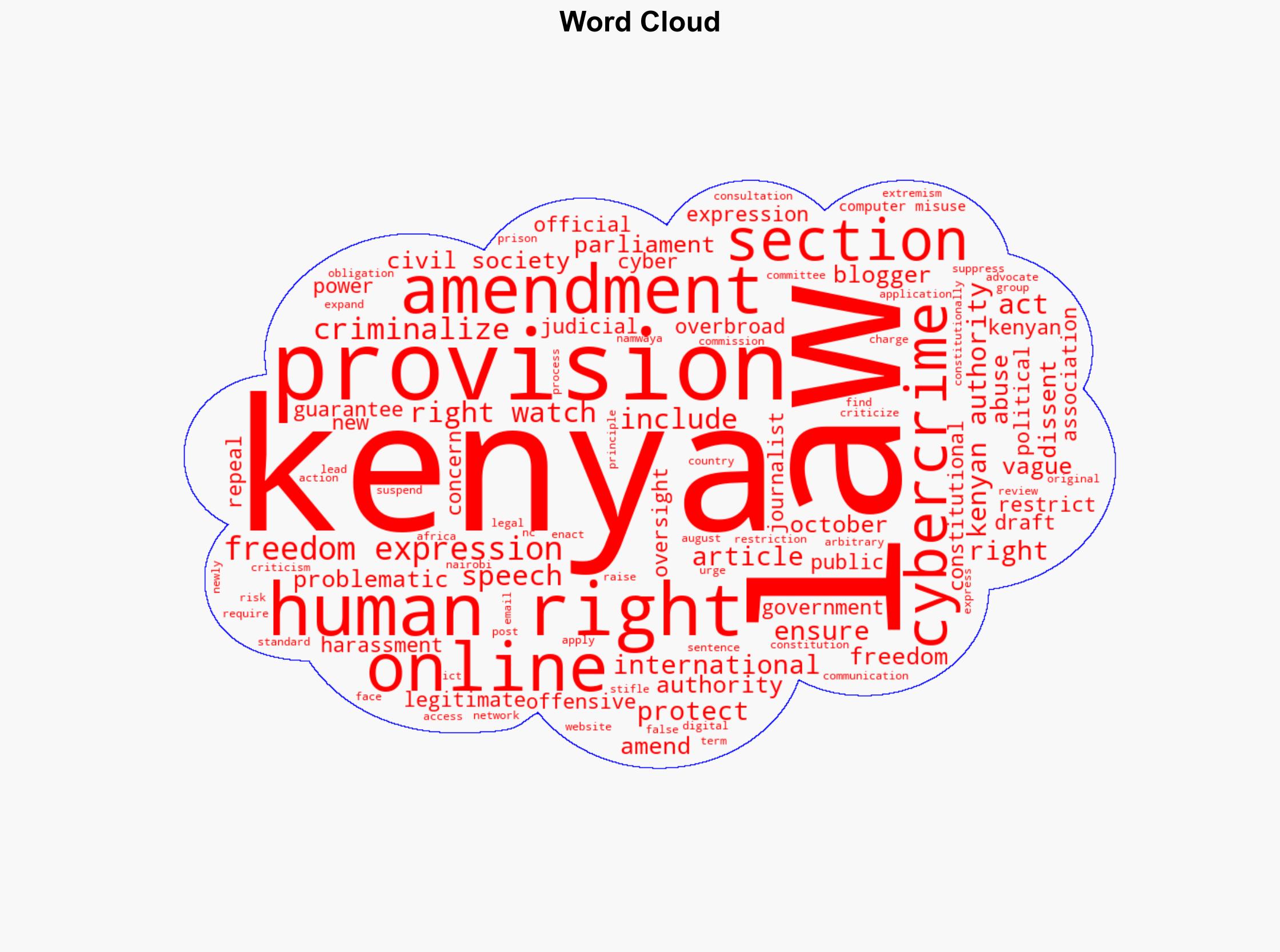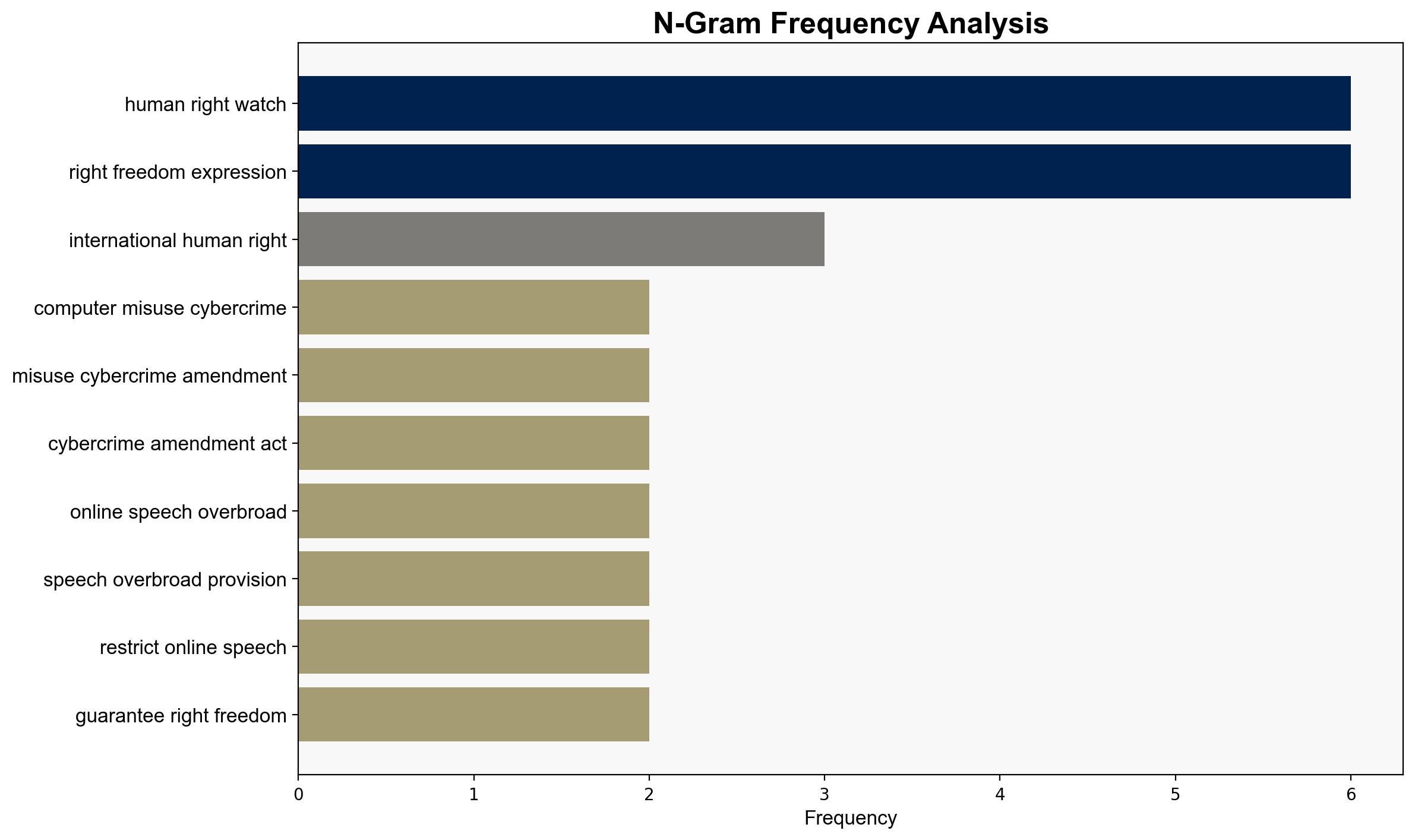Kenya New Cybercrime Amendments Threaten Online Expression – Human Rights Watch
Published on: 2025-11-07
Intelligence Report: Kenya New Cybercrime Amendments Threaten Online Expression – Human Rights Watch
1. BLUF (Bottom Line Up Front)
The newly enacted amendments to Kenya’s cybercrime laws pose a significant threat to online freedom of expression. The most supported hypothesis suggests these amendments are primarily intended to suppress dissent and control online discourse under the guise of cybersecurity. Confidence level: Moderate. Recommended action: Engage with Kenyan civil society and international human rights organizations to advocate for revisions that align with constitutional and international standards.
2. Competing Hypotheses
Hypothesis 1: The amendments are designed to enhance cybersecurity and protect citizens from cyber threats, such as fraud and identity theft, but inadvertently overreach, affecting freedom of expression.
Hypothesis 2: The amendments are intentionally crafted to suppress dissent and control online expression, using cybersecurity as a pretext.
Using Analysis of Competing Hypotheses (ACH), Hypothesis 2 is better supported. The amendments’ broad and vague language, combined with historical context of governmental suppression of dissent, suggests intentionality in restricting online speech.
3. Key Assumptions and Red Flags
Assumptions:
– The Kenyan government prioritizes cybersecurity over freedom of expression.
– Civil society’s warnings reflect genuine concerns rather than political bias.
Red Flags:
– Vague language in the amendments that could be interpreted to criminalize legitimate speech.
– Historical precedent of using legal frameworks to suppress dissent.
– Lack of adequate judicial oversight in the amendment process.
4. Implications and Strategic Risks
The amendments could lead to increased self-censorship among citizens and journalists, stifling democratic discourse. There is a risk of international condemnation, potentially affecting Kenya’s diplomatic relations and foreign aid. The amendments may also embolden other governments in the region to adopt similar measures, escalating regional suppression of online freedoms.
5. Recommendations and Outlook
- Engage with Kenyan civil society and international organizations to advocate for amendments that protect both cybersecurity and freedom of expression.
- Monitor the implementation of these laws and document any abuses or overreach.
- Scenario-based projections:
- Best Case: Amendments are revised to align with international standards, balancing security and freedom.
- Worst Case: Amendments lead to widespread suppression of dissent, damaging Kenya’s democratic institutions.
- Most Likely: Amendments remain contentious, with ongoing legal challenges and civil society pushback.
6. Key Individuals and Entities
– William Ruto
– Otsieno Namwaya
– Bonface Mondi Nyangla
– Maverick Aoko
– Kenya Human Rights Commission
– Bloggers Association of Kenya
7. Thematic Tags
national security threats, cybersecurity, counter-terrorism, regional focus





